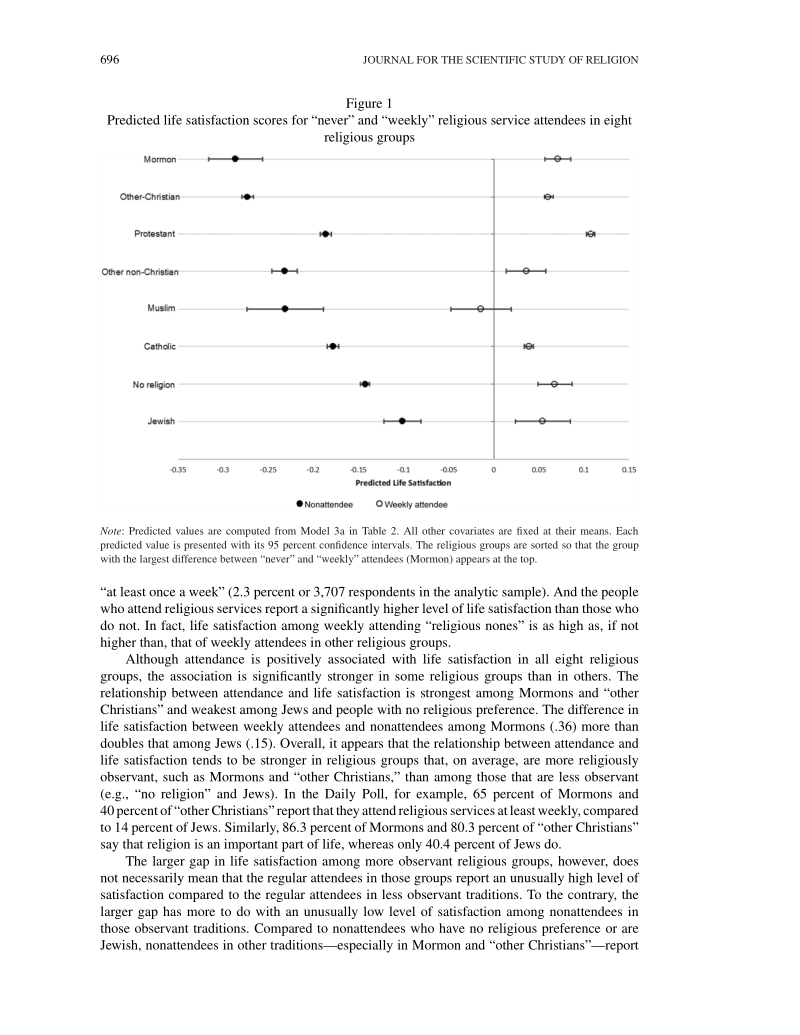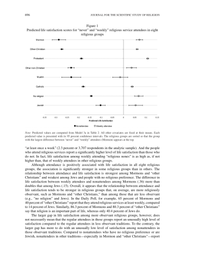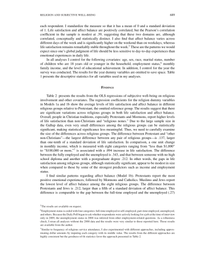Shows how Church members do on surveys of well-being.
- Type
- Academic / Technical Report
- Source
- Chaeyoon Lim Non-LDS
- Hearsay
- DirectScribed ParaphraseSecondary
- Reference
Chaeyoon Lim, "Religion and Subjective Well‐Being Across Religious Traditions: Evidence from 1.3 Million Americans" Journal for the Scientific Study of Religion 54, no. 4 (2015): 684-701
- Scribe/Publisher
- Journal for the Scientific Study of Religion
- People
- Chaeyoon Lim
- Audience
- Reading Public
- Transcription
Overall, people in Christian traditions, especially Protestants and Mormons, report higher levels of life satisfaction than non-Christians and “religious nones.”
Protestants report the most positive emotional experiences, followed by Mormons and Catholics.
Although attendance is positively associated with life satisfaction in all eight religious groups, the association is significantly stronger in some religious groups than in others. The relationship between attendance and life satisfaction is strongest among Mormons and “other Christiansˮ and weakest among Jews and people with no religious preference. The difference in life satisfaction between weekly attendees and nonattendees among Mormons (.36) more than doubles that among Jews (.15). Overall, it appears that the relationship between attendance and life satisfaction tends to be stronger in religious groups that, on average, are more religiously observant, such as Mormons and “other Christians,ˮ than among those that are less observant (e.g., “no religionˮ and Jews). In the Daily Poll, for example, 65 percent of Mormons and 40 percent of “other Christiansˮ report that they attend religious services at least weekly, compared to 14 percent of Jews. Similarly, 86.3 percent of Mormons and 80.3 percent of “other Christiansˮsay that religion is an important part of life, whereas only 40.4 percent of Jews do.
- Citations in Mormonr Qnas
The B. H. Roberts Foundation is not owned by, operated by, or affiliated with the Church of Jesus Christ of Latter-day Saints.



